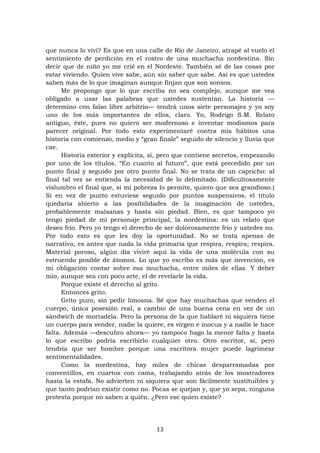


Since its inception in 2010, Time has fallen asleep… has been presented in over fifty book shops and libraries in different cities, with a growing number of living books that form a library currently holding 88 titles in English, French, Arabic, Dutch, Norwegian, Greek, German, Polish, Estonian, Swedish, Danish and Greenlandic. A total of six living books makes up the catalogue of this second instalment. In this year’s edition, across three days the reading-transmission of the two books in Spanish can be requested or one or more of the five books in English, all outlined in the list below, can be received by mail. The first encounter was held in 2020 and contributed to the project giving rise to two new “living books” in Spanish and which, along with five titles in English, were made available in in-person and epistolary formats for interested visitors.

The project aspires to nothing material - learning a book by heart means to take on a continuous process of recalling and forgetting.

Thus, in this activity learning by heart is done as an ongoing practice in time. The title comes from a phrase that appears in Ray Bradbury’s 1953 novel Fahrenheit 451, which is set in a future society where books are forbidden, causing a community of people to go underground to learn the last existing books with a view to conserving them. Time has fallen asleep… focuses on the importance of memory and word of mouth, on producing conditions of encounter between people, on proximity, intimacy and care, by dint of a liking for highly divergent books: novels, essays, poetry, prose. Together, they form a library collection of “living books” which, at stipulated times, are available to the public in the form of individual encounters from which to recite what has been learned to a visitor. A journal on the Theory of Literature and Comparative Literature (2), 2017įor the second year, the Museo Reina Sofía welcomes Time has fallen asleep in the afternoon sunshine by choreographer Mette Edvardsen, a project where people from different countries memorise books of their choice. Text, Body and Life in Time has fallen asleep in the afternoon sunshine” in Tropelías. “Learning by heart is perhaps the best possible reading of a book, by a reader who is moved and captivated, willing to learn the text in such a way that it becomes an integral part of her living organism”. It creates nothing new, no new idea that changes or improves the state of things, no new image that helps us to comprehend our problems". Whether it be an artistic or life experience, it seems an obvious and unjustifiable waste of time. “Devoting countless hours to learning books by heart seems to contradict every principle governing what we understand by human effort from modernity.


 0 kommentar(er)
0 kommentar(er)
